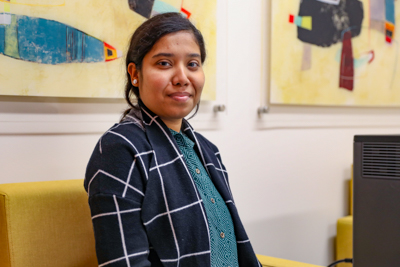Student spotlight: Tasnim Tabassum, PhD student in Population Health Science

Where are you from, and what brought you to Mississippi?
I am an international student from Bangladesh. It’s half a world away, but the population health challenges here in Mississippi feel familiar. Both places are striving to improve maternal health and to confront the growing burden of chronic diseases such as stroke, hypertension, diabetes, and obesity. The stakes are high, and so is the opportunity to learn.
UMMC stood out to me because it’s Mississippi’s leading research institution and is deeply engaged with its communities. Here, I’m developing the data, policy, and implementation skills needed to turn evidence into action. And beyond the classroom, I’ve fallen for Mississippi’s sunshine, lush green landscapes, and peaceful, welcoming atmosphere.
Please describe your path from urban planner to population health scientist.
I began my career in urban planning, where the guiding question is how places shape daily life. Planning taught me to work with land use, housing, transportation, parks, and food systems – always with community input. I saw firsthand how where we build roads and sidewalks affects physical activity, how hospital locations determine access to care, how grocery gaps drive chronic disease, and how housing conditions influence infection and air quality.
That realization pulled me toward population health. Now I use many of the same spatial tools – combined with epidemiology and policy analysis – to measure inequities, test interventions, and inform decision-making. In short, I’ve moved from designing better places to designing better health outcomes.
Why the School of Population Health?
The Bower School of Population Health is a truly transdisciplinary home. Clinicians, statisticians, GIS scientists, and policy leaders work side by side, sharing tools that turn data into action. The environment is collaborative, practical, and impact-focused. It's an ideal program for anyone committed to reducing health disparities in Mississippi and beyond.
What are your goals after you graduate?
I plan to join the policy workforce as a population health analyst, using GIS and social determinants of health measures to study chronic disease. My long-term goal is to bring lessons and solutions that work in Mississippi to communities in Bangladesh.
What would you say to someone considering enrollment at the School of Population Health?
Join if you truly want to make a difference in population health. The school offers rigorous training and real-world opportunities to apply what you learn alongside partners in the field. You’ll leave not only with a degree, but with tangible impact and the skills to create change.


